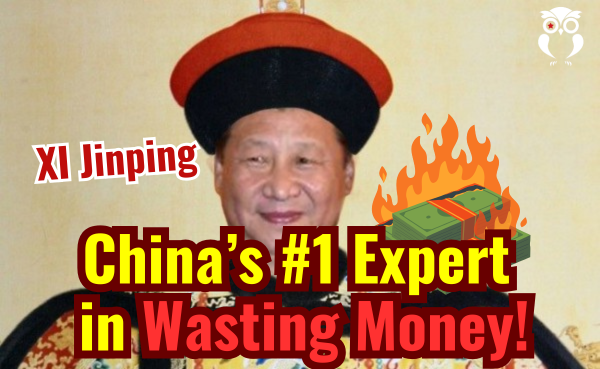China’s economy is facing severe difficulties, yet the Ministry of State Security (MSS) has unexpectedly published a commentary analyzing how "militaristic overreach" has historically burdened national finances. The article explicitly states that "the decline of the Han Dynasty began with Emperor Wu," highlighting that prioritizing economic development is crucial for national prosperity.
This statement has drawn widespread attention, as it seems to bear a striking resemblance to China's current situation. The government's extravagant military expenditures, external expansion, and harsh crackdowns on the private sector mirror the past in an unsettling way. Many wonder if the MSS is subtly criticizing the current leadership—after all, history has a way of repeating itself.

Yesterday, China’s Ministry of State Security published a commentary on its WeChat public account titled The Han Dynasty: Lessons on Economic Rise and Fall for National Security. The article draws lessons from the Han Dynasty, which transitioned from a period of immense prosperity to eventual decline, emphasizing how excessive militarization weakened the economy. It specifically asserts that "the fall of the Han Dynasty began with Emperor Wu" and underscores the importance of focusing on economic development for national strength.
The article explains that in the early Han period, rulers learned from the collapse of the Qin Dynasty and implemented policies that encouraged production, stimulated agricultural growth, and restored social stability. These measures included decentralizing power to local governance, allowing people to rebuild their communities; prioritizing agriculture to revive the economy; punishing officials who abused labor resources; reducing taxes; and cutting unnecessary government expenditures.
However, during the reign of Emperor Wu, large-scale military campaigns led to exorbitant military expenses, depleting the empire’s financial reserves and squandering the wealth accumulated during the Reign of Wen and Jing. From that point onward, the Han Dynasty’s economy never fully recovered. The article cites historians who believe that "the decline of the Han Dynasty began with Emperor Wu." Emperor Wu also imposed heavy taxes on private industries, devastating commerce and handicrafts, leaving the population struggling under severe economic hardship. The mass killings from constant warfare further reduced the labor force, worsening the decline of the Han economy.
The article concludes that economic security is the foundation of national security. It stresses that prioritizing economic development is the key to national prosperity and stability. Only by ensuring sustainable economic growth can a country maintain long-term strength, social harmony, and the well-being of its people.
The publication of this article has sparked widespread discussion. Many observers believe that the MSS’s message is a direct jab at Xi Jinping. Under Xi’s rule, China’s economic policies have been unpredictable, private enterprises have been heavily suppressed, military spending has soared, and diplomatic tensions with the West have escalated. These factors have triggered capital flight, skyrocketing unemployment, and economic stagnation.
This raises the question: Who is the real "prodigal son" of modern China? Is history repeating itself, leading the country into yet another cycle of decline?